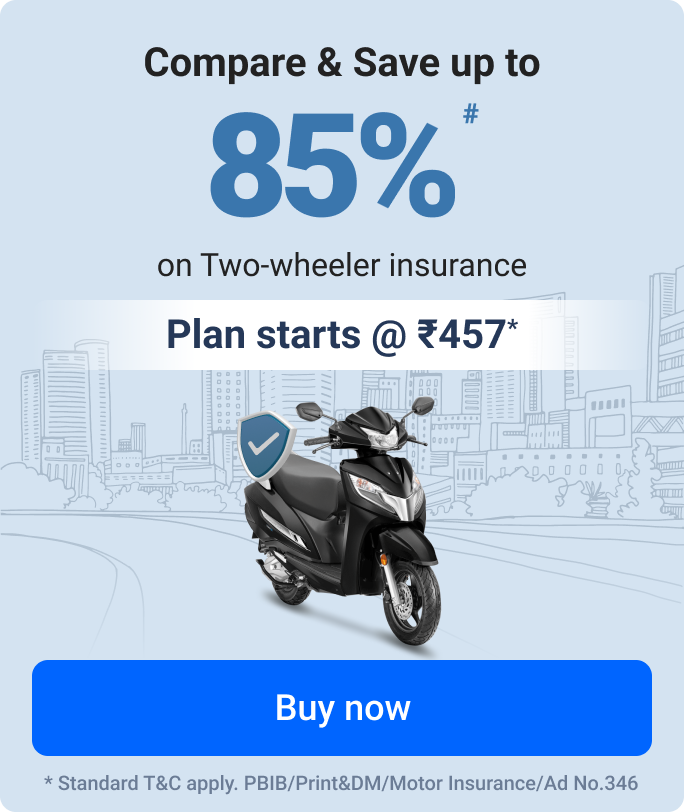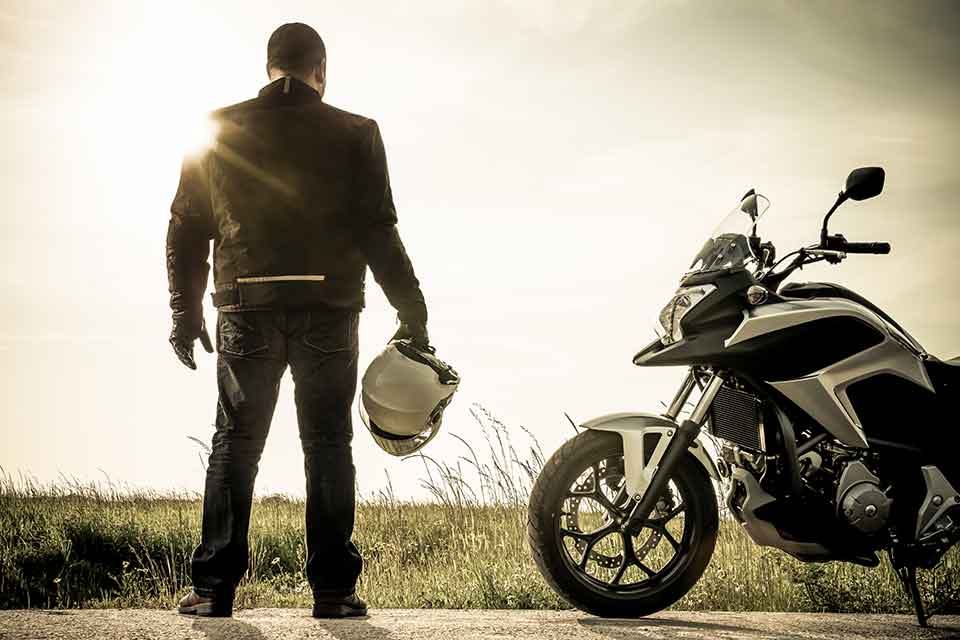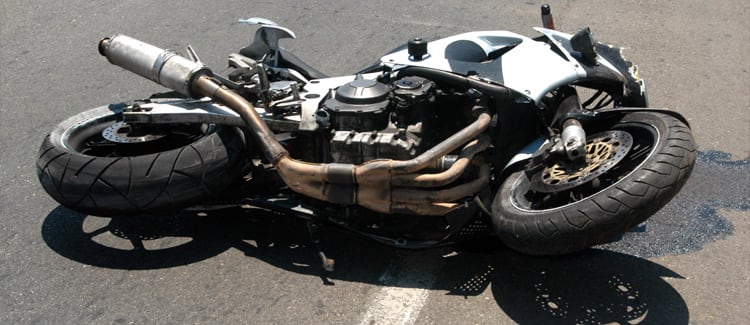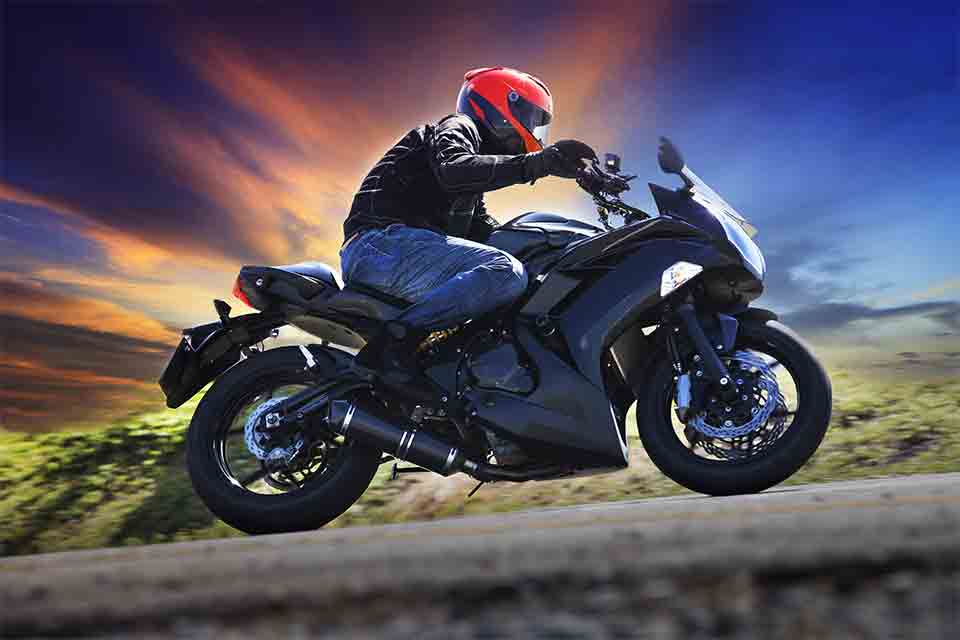Electric Bike V/s Fuel Bike: Which One is Better?
With the advancement in technology and rise in environmental pollution, there is a hikein demand for electric bikes over fuel bikes. Not only are these e-bikes emission-free, but also easy to maintain. But does that make them the better choice for everyone? Let us explore the key differences between electric and fuel bikes to help you decide which one suits your needs best.
-
Save up to 85%# by comparing plans
-
17+ Insurers to choose from
-
1.2 Crore+ Bike Insured

Plans starting ₹1.3/day*
What is an E-bike or Electronic Bike?
An electric bike, or e-bike, is a modern two-wheeler that runs on an electric motor powered by a rechargeable battery, unlike traditional fuel-powered bikes. Since e-bikes do not rely on combustion engines, they produce zero emissions, making them an eco-friendly alternative.
Moreover, to encourage the adoption of electronic bikes, the Government of India has initiated the EV subsidy program called "Faster Adoption & Manufacturing of Electric Vehicles (FAME)". This initiative provides subsidies and incentives to promote the use of electric two-wheelers, making them more affordable and accessible for consumers.
What is a Fuel Bike?
A fuel bike, also known as a petrol-powered bike, runs on an internal combustion engine that burns petrol to generate power. These bikes have been the standard mode of transportation for decades, offering higher speed, longer range, and quick refuelling compared to electric bikes.
However, fuel bikes produce emissions that contribute to air pollution and require regular maintenance, including engine servicing and oil changes. Despite these, they still remain a preferred choice for riders who need better mileage and high performance.
E-bikes Vs Fuel Bikes- Know the Difference
Since e-bikes are the future of India, some people might still get confused about whether to buy a petrol bike or an electric bike. To help you make an informed decision, here is the difference between the two:
-
Impact on the Environment
Electric bikes are eco-friendly as they run on batteries and do not produce harmful emissions. They in fact help reduce air pollution and carbon footprint, making them a greener choice for daily commuting.
In contrast, petrol bikes rely on combustion engines that release carbon emissions and contribute to air pollution. They also consume fossil fuels, which are non-renewable and harmful to the environment.
-
Cost and Affordability
The initial cost of an electric bike can be higher, but they save money in the long run with lower fuel costs and government subsidies under schemes like FAME. Moreover, charging an e-bike is also much cheaper than refuelling a petrol bike.
On the other hand, petrol bikes generally have a lower upfront cost, but their running expenses are higher due to rising fuel prices. Regular maintenance and servicing also add to the overall cost.
-
Maintenance and Repairs
Electric bikes have fewer moving parts, which means lower maintenance. They do not even require oil changes or engine servicing, but battery replacement can be an expense after a few years.
On the contrary, petrol bikes need frequent servicing, oil changes, and engine maintenance. Their parts wear out faster, leading to higher upkeep costs over time.
-
Speed and Performance
While e-bikes offer smooth acceleration and instant torque, most models have a lower top speed compared to petrol bikes. However, high-end electric bikes are improving in speed and power.
In contrast, petrol bikes are known for their higher speed and powerful performance, making them a better choice for long rides and highway travel.
-
Ease of Use
E-bikes are ideal for short commutes and city rides but may not be the best for long-distance travel due to limited range.
On the other hand, fuel bikes are more practical for longer trips and high-speed rides but come with higher fuel expenses.
Which is Better- Electric Bike or Petrol Bike?
Check out the table of differences below to know which bike is better:
| Point of Difference | Electric Bike | Fuel Bike |
| Eco-Friendliness | E-bikes are environmentally friendly and emit significantly less carbon. | Fuel bikes generate more emissions, releasing carbon dioxide and other pollutants. |
| Noise Pollution | Offers a smooth and quiet riding experience without any engine noise, reducing noise pollution. | Fuel bikes have loud engine sounds which contribute to noise pollution. |
| Initial Price | Generally more expensive than fuel bikes. However, government subsidies and lower GST rates make them more affordable in the long run. | Petrol bikes are more affordable initially, but the total cost of ownership increases due to fuel and maintenance expenses. |
| Maintenance & Repairs | E-bikes have fewer mechanical parts, which makes them easier and cheaper to maintain. | Fuel bikes require regular servicing, oil changes, and part replacements, leading to higher maintenance costs. |
| Fuel & Running Costs | The cost per km for e-bikes is much lower than fuel bikes, making them highly cost-effective over time. | Petrol prices fluctuate and are generally high. Fuel bikes have higher running costs due to regular refuelling. |
| Speed & Performance | E-bikes have instant torque and smooth acceleration, but most models have a lower top speed compared to petrol bikes. | Fuel bikes are known for higher speeds, better acceleration, and sustained performance over long distances. |
| Government Benefits | The Indian government provides subsidies under the FAME scheme, tax benefits, and lower GST rates to encourage e-bike adoption. | No specific government benefits are available for petrol bikes. |
| Lifespan & Durability | The battery life of an e-bike is around 4-6 years and may need replacement. Other components last longer due to minimal wear and tear. | Fuel bikes, if well maintained, can last 10-15 years. However, frequent servicing and engine maintenance are required. |
| Suitability for Daily Use | Best suited for short to medium commutes and city travel. | More practical for long rides, highway travel, and heavy-duty usage. |
Choosing between an electric bike and a petrol bike depends on cost, maintenance, and usage. Electric bikes are eco-friendly, have lower running costs, and need less maintenance but come with limited range and longer charging times. In contrast, petrol bikes offer higher speed, quick refuelling, and are better for long distances but require more maintenance and contribute to pollution.
So, if you need an affordable, green option for city rides, go for an electric bike. For power and long-distance travel, a petrol bike is better.
You can Also Read: Basic Tips to Maintain Your E-bike
Does an Electric Bike Need Insurance?
As per the Motor Vehicle Act, 1988, it is compulsory to purchase third-party liability insurance for your e-bike. However, if you want extensive coverage, you must opt for a comprehensive e-bike insurance policy.
Comprehensive e-bike insurance provides mandatory third-party liability coverage benefits, plus coverage for own damages. At Policybazaar.com, you will find the e-bike insurance plan within your budget. Moreover, you can compare multiple plans offered by the two-wheeler insurance companies in India.
FAQs
-
Q. Which is better fuel bike or electric bike?
Ans: The choice between a fuel bike and electric bike depends on your needs. Electric bikes are cost-effective, eco-friendly, and require less maintenance, making them ideal for city rides. Fuel bikes offer more power, longer range, and quick refuelling, making them better for long-distance travel. -
Q. Is electric bike good for daily use?
Ans: Yes, electric bikes are great for daily commuting, especially in cities. They save money on fuel, require less maintenance, and are easy to ride. However, you need to plan charging based on your usage. -
Q. Are electric bikes high maintenance?
Ans: No, electric bikes generally need less maintenance than fuel bikes since they have fewer moving parts. Regular battery care and occasional servicing are enough to keep them running smoothly.
Two Wheeler insurance articles
^The renewal of insurance policy is subject to our operations not being impacted by a system failure or force majeure event or for reasons beyond our control. Actual time for a transaction may vary subject to additional data requirements and operational processes.
^The buying of Insurance policy is subject to our operations not being impacted by a system failure or force majeure event or for reasons beyond our control. Actual time for transaction may vary subject to additional data requirements and operational processes.
#Savings are based on the comparison between highest and the lowest premium for own damage cover (excluding add-on covers) provided by different insurance companies for the same vehicle with the same IDV and same NCB.
*TP price for less than 75 CC two-wheelers. All savings are provided by insurers as per IRDAI-approved insurance plan. Standard T&C apply.
*Rs 538/- per annum is the price for third party motor insurance for two wheelers of not more than 75cc (non-commercial and non-electric)
#Savings are based on the comparison between the highest and the lowest premium for own damage cover (excluding add-on covers) provided by different insurance companies for the same vehicle with the same IDV and same NCB.
*₹ 1.5 is the Comprehensive premium for a 2015 TVS XL Super 70cc, MH02(Mumbai) RTO with an IDV of ₹5,895 and NCB at 50%.
*Rs 457/- per annum is the price for the third-party motor insurance for private electric two-wheelers of not more than 3KW (non-commercial).The list of insurers mentioned are arranged according to the alphabetical order of the names of insurers respectively.Policybazaar does not endorse, rate or recommend any particular insurer or insurance product offered by any insurer. The list of plans listed here comprise of insurance products offered by all the insurance partners of Policybazaar. For complete list of insurers in India refer to the Insurance Regulatory and Development Authority of India website www.irdai.gov.in





























